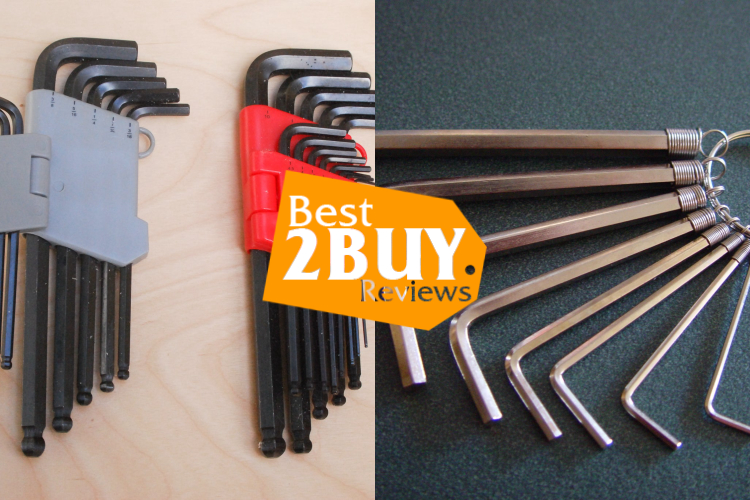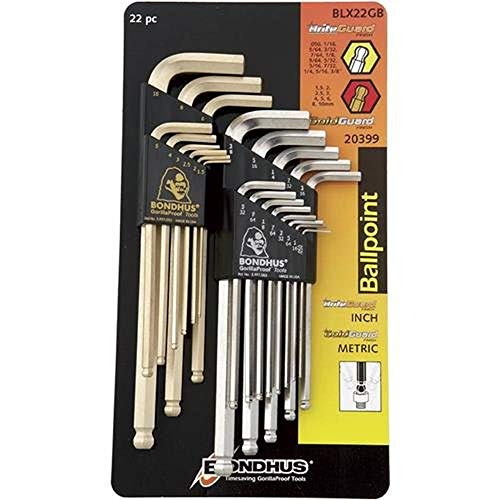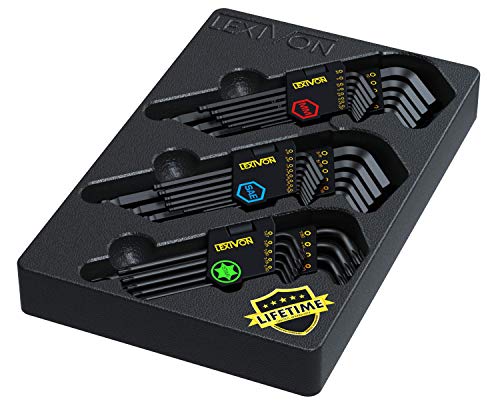Hex Keys: Things You Need To Know

- 1. Hex Keys: Things You Need To Know
- 1.1. What is a Hex Key?
- 1.2. History of Hex Keys
- 1.3. Design
- 1.4. What are the common types of Hex Key?
- 1.5. Application and Usage
- 1.6. Choosing The Right Hex Key
- 1.6.1. Types of Hex Keys
- 1.6.2. Sizing and Measurements
- 1.6.3. Material and Durability
- 1.6.4. Special Features and Considerations
- 1.6.5. Ergonomics and Comfort
- 1.7. Tips for Using Hex Keys
- 1.8. Conclusion
What is a Hex Key?
Hex keys, alternatively referred to as Allen keys or Allen wrenches, are small, L-shaped instruments that have evolved into an essential component of any handyman's or DIY enthusiast's collection. Their straightforward yet efficient structure enables effortless tightening or loosening of hexagonal socket screws and bolts. Available in various sizes, cost-effective, and versatile in application, these tools are essential for both professionals and hobbyists alike.
History of Hex Keys
The hex key, tracing its roots to the mid-20th century, is credited to the Allen Manufacturing Company. This tool was initially developed for assembling the company's products and was later named the "Allen wrench" after its founder, William G. Allen. Gradually, the tool's design transformed into the familiar L-shaped form with a hexagonal tip that we now commonly identify.
Design
Hex keys are typically made of durable materials such as steel or aluminum, providing strength and longevity. They feature a long arm and a shorter, right-angled arm, forming an "L" shape, allowing users to exert torque efficiently. The business end of the tool contains a hexagonal shape, matching the hexagonal socket heads of bolts or screws.
These tools are available in various sizes, usually ranging from very small (often found in precision instruments or electronics) to larger ones used in furniture assembly or automotive repairs. Common sizes include 0.7mm to 19mm for metric keys and 0.028 inches to 3/4 inches for imperial measurements.
What are the common types of Hex Key?
Hex keys come in various types and sizes, catering to different needs and applications. The most common types include:
- L-Shaped Hex Keys: These are the most traditional and widely used hex keys. They feature an L-shaped design, providing leverage and a comfortable grip for manual turning.
- T-Shaped Hex Keys: These hex keys have a T-shaped handle at one end, offering a more ergonomic grip and better torque for fastening or loosening bolts.
- Fold-Up Hex Key Sets: These sets contain multiple hex keys of different sizes that fold into a compact case, providing convenience and portability.
- Ball-End Hex Keys: These keys have a ball-shaped tip at one end, enabling them to be inserted at an angle into a screw or bolt, which can be advantageous in hard-to-reach areas.
Application and Usage
Hex keys find application in various industries and activities:
- Furniture Assembly: They are commonly used to assemble furniture with hexagonal socket bolts.
- Automotive Repair: Hex keys are used in vehicle repairs, such as fixing brakes, engines, or other components.
- Bicycle Maintenance: Hex keys are essential for adjusting and maintaining bicycle components, such as handlebars, seats, or brake systems.
- Machinery Maintenance: They are crucial for maintenance work in industrial machinery and equipment, facilitating repairs and adjustments.
Choosing The Right Hex Key
Selecting the right hex key can sometimes be a perplexing task, considering the range of sizes, types, and materials available. Understanding the key aspects when choosing a hex key will ensure you pick the right one for your needs.
Types of Hex Keys
Hex keys come in various types, each designed for specific applications. The most common types include L-shaped, T-shaped, folding, and screwdriver-style hex keys. The L-shaped hex key, with a short end and a long end, is the most traditional and widely used. T-shaped keys, often equipped with handles for better torque, provide more comfort and control. Folding keys are convenient for portability, while screwdriver-style hex keys offer versatility for different screw types.
Sizing and Measurements
Hex keys are available in metric and imperial (SAE) measurements. It's crucial to know the exact size of the hex screw or bolt you intend to work on to select the appropriate key. Common metric sizes range from 0.7mm to 24mm, while SAE sizes range from 0.028 inches to 1 inch. Make sure to have both metric and SAE sets if you work on projects that might require different measurements.
Material and Durability
Hex keys are typically made from materials like carbon steel, stainless steel, and chrome vanadium steel. Carbon steel keys are affordable but are more prone to wear and deformation. Stainless steel hex keys are corrosion-resistant but might lack the hardness needed for tougher applications. Chrome vanadium steel keys offer durability and are suitable for heavy-duty use. Additionally, some hex keys come with protective coatings such as black oxide to prevent rust and corrosion.
Special Features and Considerations
Some hex keys come with ball ends, allowing for an angle entry into the screw or bolt, enabling work in tight or hard-to-reach spaces. There are also hex key sets with color-coded handles for easy identification of sizes. Another factor to consider is the shape of the key - straight, chamfered, or rounded ends. The shape might affect how well the key fits into the screw head and the torque it can handle.
Ergonomics and Comfort
The comfort and usability of a hex key can significantly impact the efficiency of your work. T-shaped hex keys with cushioned handles offer better ergonomics, reducing strain on your hands during extended use. If you anticipate working on projects that require more torque, choosing hex keys with longer handles or T-shaped designs might be more comfortable.
Tips for Using Hex Keys
To maximize the utility and lifespan of hex keys, consider the following tips:
- Choose the Right Size: Ensure you're using the correct size of hex key to avoid stripping or damaging the bolt or screw.
- Apply Proper Torque: Use the appropriate amount of force while turning the hex key to prevent over-tightening or under-tightening.
- Store Properly: Store hex keys in a dry place to prevent rust and damage. Consider using cases or racks to keep them organized.
- Inspect for Wear: Regularly check the hex keys for signs of wear or deformation, and replace them if they're damaged.
Conclusion
Hex keys, despite their apparent simplicity, offer unparalleled versatility and utility. Whether you're a DIY enthusiast, a professional tradesperson, or someone who occasionally needs to adjust screws at home, owning a set of hex keys is indispensable. These unassuming tools play a vital role in tasks such as furniture assembly, electronics repair, and automotive work, significantly streamlining various activities. Acquiring a high-quality set of hex keys will undoubtedly enrich your toolbox, proving to be a valuable investment.











